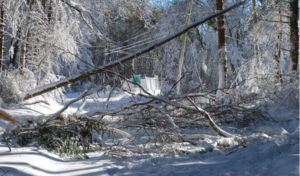Winter is right around the corner. Before it gets here I want you to review this piece I wrote posted on March 12 as a guide for your winter storm preparation efforts.
A major storm is predicted to hit New England tonight, bringing snow totals of up to 24 inches in parts of the region. Boston could get slammed with more than a foot of snow.
New Englanders are used to snow, but even experienced need refreshing once in awhile. What should be done to prepare for a Nor’Easter like the one about to hit?
Despite the jokes about hysterical shoppers fighting for the last loaves of bread and bottles of milk, food prep is a top priority. You should always have enough nonperishable foods in your house to last you a week (bare minimum).
One benefit of major snow storms is that they come with a lot of easily obtainable water. Just melt the snow! But if you prefer drinking your water when you want it, and not having to pre-melt it, stocking up is recommended.
Along with snow, a Nor’Easter brings wind, lots of it. Those extreme winds can knock out power and communications lines for days, even weeks.
When the power goes out, your strategy must adapt. You could suffer from having no heat, no light, no electric stoves or appliances, and possibly no running water if you have a well. If you are at this point, you’ve already made the mistake of not having a generator. That was a mistake, but you must keep moving.
Let’s talk about each of those problems in turn:
- Heat: Without dependable heat in the New England winter, you will die. Hypothermia is a terrible way to go. If you don’t have a generator, wood stove, fire place, kerosene heater, or some other form of alternative heat at your home, find a warming station in your area. Preferably, you’ll have an alternative heating method prepared before the storm. *BONUS* If the heat is out in your house, your pipes will eventually freeze given prolonged cold weather. If this looks like a possibility, consider draining the pipes in your home before they burst.
- Light: Get a SureFire Minimus variable-output LED headlamp or something like it. I prefer a hands free light whenever possible for obvious reasons.
- No stove: Many homes have electric ranges that become expensive counter space when the power goes down. Many others have gas stoves with electric pilot lights. If you can’t cook without electricity, you should have lots of food stored that needs minimal preparation. Canned, dried, and cured foods can last a long time and typically don’t need much prep. Having an emergency supply on hand can be critical. You can also prepare with “meals ready to eat,” a.k.a. MREs.
- Water: I’ve written an entire series on how to prepare yourself for not having running water. Read that here.
E.J. Smith - Your Survival Guy
Latest posts by E.J. Smith - Your Survival Guy (see all)
- Yes, Money Can Buy You Happiness - April 23, 2024
- State Income Taxes and the 2024 NFL Draft Class - April 23, 2024
- This ARK is Sinking - April 23, 2024
- “That’s Why I Hired You,” They Tell Me - April 22, 2024
- The Silver Lining of Higher Interest Rates - April 22, 2024


















